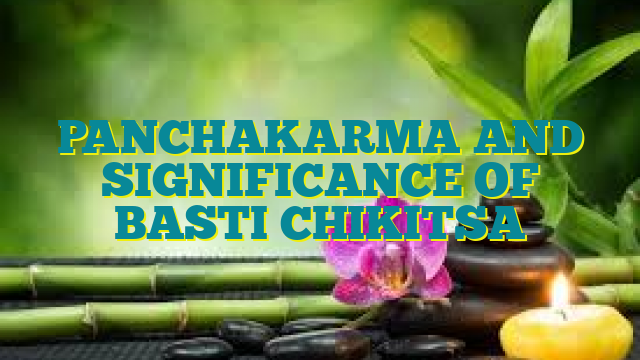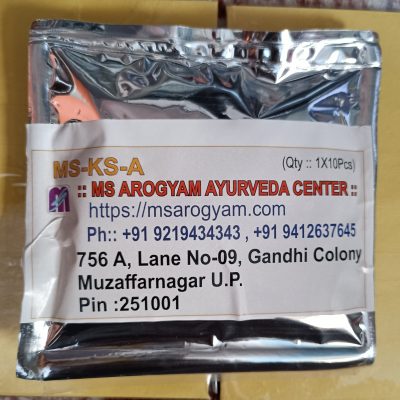Post Contents
SIGNIFICANCE OF PANCHAKARMA
– Most Important Basti Chikitsa
Panchakarma
Panchakarma procedures are Therapeutic procedures which interferes in disease process
Panchakarma procedures decrease the intensity and recurrence rate of the disease, such as Tamaka Shwasa by Virechana
Ksheera Basti in Parinama Shoola
Picchana Basti in Pravahika
Disease prevalence at glance
Metabolic Disorders – 70%
Nutritional Disorders
Immunity Disorders
Infectious Disorders
Psychosomatic Disorders
Tropical Disorders
Endocrinal Disorders
Iotrogenic Disorders
Neurological Disorders
Surgical Disorders
Allergic Disorders ————– 30%
BASTI
What is Basti?
Purpose of Basti
What is Basti vidhi?
Therapeutic purpose of Basti
Commonly advised Basti Dravyas such as, Sarpi, Taila,
etc.
Use of Basti dravyas in combinations Indications for Basti Contraindications
Bastina deeyate ete bastihe | Bastibehe deeyate yasmath tasmat bastiriti Smruthaha |
TYPES
Depending on the route of administration
Pakvashaya gata
Garbhashya gata
Mutrashya gata
Depending on the medications used
1.NIRUHA (Asthapana / Kashaya basti)
Examples
- ^ Madutaileka
- ^ Yapana
- ^ Siddha
- ^ Yuktarata
2. ANUVASANA (Sneha basti)
- ^ Sneha
- ^ Matra
Depending on the action
CARAKA
- 1. VATAGNA
- 2. SNEHANEYA
- 3. KRIMIGNA
- 4. BALAVARNA KRUTHA
- 5. SHUKRA KRUTHA
- 6. VRUSHATVA KRUTHA
SUSHRUTHA
- 1. SHODHANA
- 2. LEKHANA
- 3. SNEHANA
- 4. BRUMHANA
VAGBHATA
- 1. UTHKLESHA
- 2. DOSH HARA
- 3. SHAMANA
SHARANGADHARA
- 1. UTKLESHANA
- 2. LEKHANA
- 3. DOSHA HARA
- 4. BRUMHANA
- 5. SHODHANA
- 6. PICHILA
- 7. SHAMANA
- 8. DEEPANA
Depending on the Sankhya
KARMA Basti (30)
KALA Basti (16)
YOGA Basti (8)
Administration of Anuvasana and Niruvaha basti in permutation and combination
INDICATIONS OF BASTI
- Ati vahnaya Khuda
- Ruksha Pliha
- Kevala vataratta Shuddhatisara
- Gulma Sula
- Anaha Jeerna jwara
- Praisyaya Shukra graha
- Anila graha Mala graha
- Ashmari Vrddhi
- Rajo nasha Garbini (after 7months)
CONTRAINDICATIONS OF BASTI
- Ati snigdha Arsa
- Ksatoraska Hiccha
- Amatisari Admana
- Pandu Meha
- Vamiman AlpaVahni
- Pinasa Pliha
- Samsuddha Badhodari
- Vidbheda Karsha
- Svasa Chidrodari
- Abhisyandi Sthoulya
- Kasa Udakodari
- Slipada Galaganda
- Praseka Kusthi
- Apaci Kaphodara
| AGE | NIRUHA | ANUVASANA |
| 1Year | 1pala(48 ml) | 0.2 pala (12ml) |
| 2nd year | 2 pala | 0.5 pala |
| 3rd to 12th years | 3 to 12 palas,
1pala increased age wise |
0.75 to 3 palas |
| 13th year | 14 palas | 3.5 palas |
| 13th to 18th years | 14 to 24 palas,
2 palas increased age wise |
3.5 to 6 palas |
| 18th to 70 years | 24 palas | 6 palas |
BASTI DOSHAS
- Basti Netra
- Basti Putaka
- Basti Pranidana
- Basti Dravya Samyojana and Samskara
Factors to be observed after administration of Basti
Basti pratyagama
Yoga ayoga nireekshana
Yapat and their management
Samsarjana depending on the need
Basti as Ardha Chikitsa;
❖ As, it is administered in Vata vyadhis
❖ Bahudravya Samyogath
❖ Bahusamskarath
❖ The route is conducive
❖ Basti dravyas contain such as Madhu, Saindhava serve the purpose of the electrolyte balance
❖ Used in Neurological disorders
Precautions during administration of Basti
Anuvasana Basti should be given after food Niruha Basti should be given in empty stomach Niruha and Anuvasana Matra should be executed properly
The Niruha Basti samyojana should be done properly
Procedures of Nuruha and Anuvasana should be followed
Proper care should be taken after administation of Basti
Decoctions for Niruha basti should be properly prepared.
Anorectal examination should be done prior to administration of Basti
महत्वपूर्ण सलाह
पंचकर्म एक गंभीर और व्यक्तिगत चिकित्सा प्रक्रिया है। इसे हमेशा एक प्रशिक्षित और योग्य आयुर्वेदिक चिकित्सक की देखरेख में ही किया जाना चाहिए। चिकित्सक रोगी की प्रकृति, दोषों की स्थिति और रोग के अनुसार ही पंचकर्म की विधि, अवधि और प्रयोग की जाने वाली औषधियों का निर्धारण करते हैं।






